Given the lucrative contracts open to them, leading West Indians are unavoidably playing too much for their own good and, by obvious extension, the good of the West Indies cricket. Paradoxically, they are also playing too little.
For Chris Gayle, Dwayne Bravo, Kieron Pollard and Sunil Narine, it has been virtually non-stop through the first seven months of 2013. So it would have been for Marlon Samuels but for a couple of unrelated injuries but he has returned to mount the merry-go-round again.
Pollard, Narine and several other West Indians added the Bangladesh Premier League in January and February to their agenda. Darren Sammy made a big impression in his first IPL season before West Indies commitments called. Their workload is only slightly less demanding than Gayle’s. Several others not quite as highly valued have also found useful engagements elsewhere.
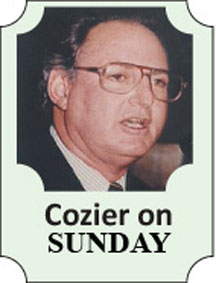
Gayle’s only first-class matches for the year have been the Zimbabwe Tests. At no time has he occupied more than the three hours, five minutes and 145 balls he needed to compile his 15th Test hundred, 101 against Zimbabwe; there simply isn’t such scope in innings confined to 50 or 20 overs.
Narine’s one and only first-class appearance in the 2013 season was for Trinidad & Tobago against Guyana in February when he sent down 17 overs in the first innings, 28.4 in the second for match figures of 10 for 143. Otherwise, his spells have been limited to 10 or four.
Likewise, Sammy had only one four-day match for the Windwards before he was off to the IPL. Except for the Zimbabwe Tests, all his other cricket in 2013 has been with the white ball over one day.
Darren Bravo and Keiron Powell, two in their mid-20s who represent the future of the batting, held no overseas franchise contracts; injuries restricted Bravo to a solitary four-day match for Trinidad & Tobago, Powell to three for the Leewards before the Zimbabwe Tests.
And the only first-class cricket between now and a series of three Tests in New Zealand in November and December that either extends or ends the sequence of six Test victories is for the ‘A’ team in India in October.
It makes a strong case for both the younger Bravo and Powell to be chosen in the ‘A’ team for India, specifically to get back into the groove of cricket without limitations. The other up-and-comers who will eventually fill the gaps might have had valuable international experience with a bolder selection policy; instead, they have been confined to the sub-standard regional competitions and a couple of ‘A’ team four-day ‘Tests’ against India ‘A’ in June 2012 and Sri Lanka ‘A’ a year later.
As the prime example of overwork, Gayle started with eight matches in Australia’s Big Bash T20 league, immediately followed by four ODIs on the West Indies tour of Australia in February, 16 in the Indian Premier League, a couple of Tests against Zimbabwe in the Caribbean, three matches in the Champions Trophy in England, four more in the triangular ODI series with India and Sri Lanka, five ODIs and two T20s against Pakistan back home and then straight into the current, initial Limacol Caribbean Premier League.
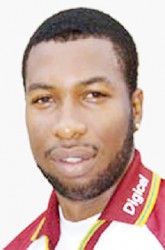
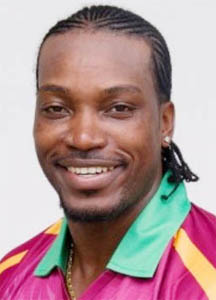
They add up to 42 limited-overs and two Test matches in heaven knows how many different cities in seven countries scattered across the planet. He and the other globetrotters
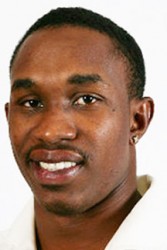
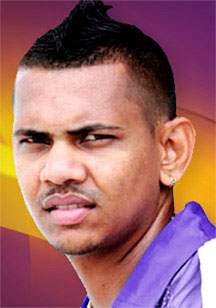
have flown in a host of aircraft, from 747s and Airbuses to LIAT’s Avros, spent hours in a variety of airports and slept in beds in five-star hotels and others not so starry.
Such a grind takes its toll.
As Clive Lloyd observed over lunch in St. Lucia last week (and he would know even if Sri Lanka, Bangladesh and Zimbabwe and global T20s were not yet involved in his time as West Indies captain), it is not simply the physical pressure; it is perhaps even more mentally draining.
The effects are evident in the performances of all but the hardiest. It is the reason why the Indian board has put a virtual ban on its players participating in any tournament outside its own IPL. Those minded to do so are made aware not to expect to be chosen again either for India or the IPL. Those from other countries – Michael Clarke and Stuart Broad most prominent – have chosen to miss out on IPL contracts to prevent the burnout they can see in some others.
The England and Wales Cricket Board (ECB) has stated that it will not create an IPL window for senior players when England’s new three-year contracts come into force in October. Even though the Professional Cricketers’ Association there is negotiating those contracts on behalf of the players, the ECB managing director, Hugh Morris, is adamant that it is not budging on the issue.
The West Indies Cricket Board (WICB) does not have such power. It accepts that it would be unrealistic to expect players to turn down lucrative offers from the IPL, Big Bash and elsehwre; indeed, it allowed Samuels to miss the home Tests against Australia last year to go to the IPL before picking him for the subsequent tour of England. The same was the case with Sunil Narine.
It has created an IPL window and has now done the same for the Limacol CPL, making it difficult to see how it can adhere to commitments under the ICC’s Future Tours Programme.
Perhaps the money on offer from the Limacol CPL will be enough to persuade players, for their own good and that of West Indies cricket, to remain at home and participate again in the regional tournaments, so weakened by their absence. But we shouldn’t hold our breath. It will be continue to be a matter of making the best of our situation and that’s not ideal.




